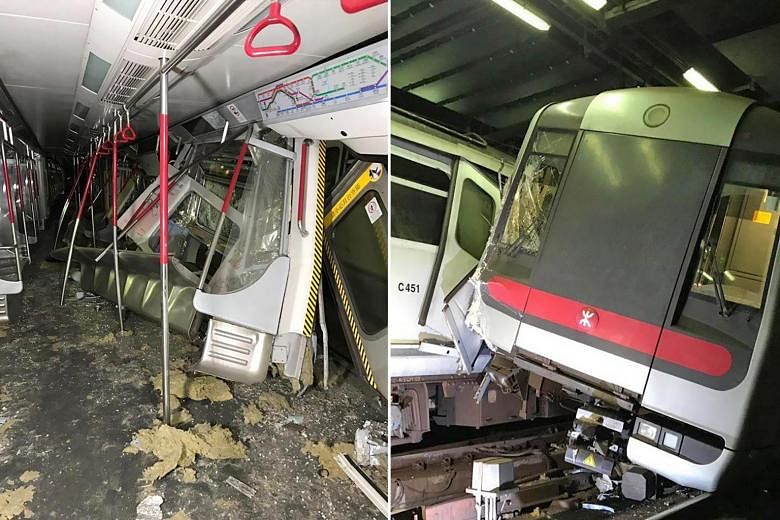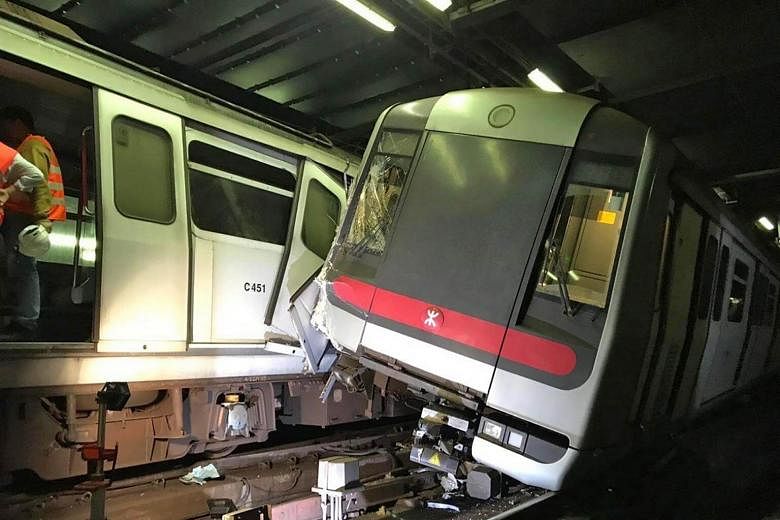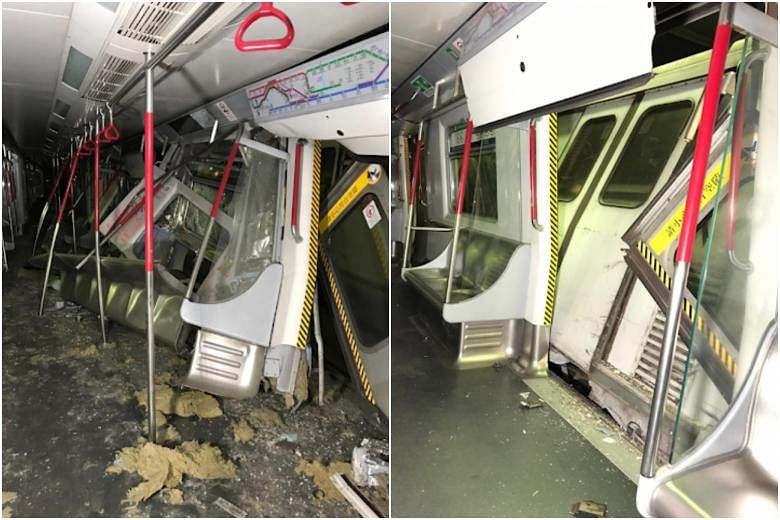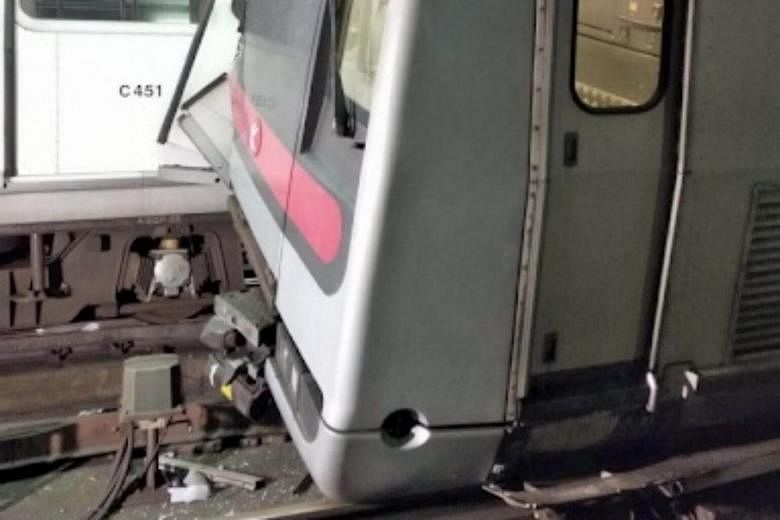HONG KONG - The safety of a new signalling system which Hong Kong's rail operator planned to roll out has been called into question after two subway trains collided in the wee hours of Monday (March 18) during a trial run.
Following the incident, MTR Corporation said it would immediately suspend trials of the new system until the cause of the derailment was clear. Later in the day it said the signalling fault was linked to a software glitch.
The MTR had intended to use the new system alongside the old one in the second half of the year, before eventually replacing the old one altogether.
The collision occurred at around 3am on the Tsuen Wan line when it was closed to the public. A train heading to Central station derailed and hit the third and fourth compartment of another train going in the opposite direction towards Tsuen Wan.
Two drivers were taken to hospital with one injured in the leg and the other reportedly suffering from smoke inhalation.
Photos of the incident showed damaged train cabins with doors unhinged. Shattered glass was strewn across the cabin floor.
Three carriages were reportedly damaged and at least one was seen tilted on its side and off the track..
MTR's operations director, Adi Lau, apologised for the inconvenience caused and told a media briefing the incident was the first of its kind since the line opened almost four decades ago.
He said: "We have already contacted our contractors ... and we have demanded an urgent meeting to be held this afternoon to understand more about the testing and also the incident. We are also setting up an expert panel to look into the issues and investigate the cause (of the collision)."
Mr Lau assured the public that new signalling system would only be implemented after it passed all tests.
The MTR board is expected to hold an emergency meeting on Tuesday afternoon to discuss the incident.
RTHK quoted the chairman of Legco's transport panel, Mr Ben Chan, questioning why the system's anti-crash mechanism failed to work, something which Mr Lau also said MTR would investigate.
Mr Chan said the incident had greatly harmed public confidence in the new signalling system, and the railways sub-committee of the Legco transport panel was arranging a special meeting to discuss the matter.
Democratic party lawmaker Lam Cheuk-ting said he was concerned that the MTR would delay replacing the signalling system, and that services on other lines might also be affected.
He added that any delay in replacing the ageing signalling system would lead to more problems in the future.
The South China Morning Post quoted Hong Kong Federation of Railway Trade Unions chairman Lam Wai-keung as saying that the trains had crashed while running the SelTrac signalling system developed by French company Thales.
Also known as communications-based train control (CBTC), SelTrac was installed on Singapore's East-West MRT line. In November 2017, it was blamed for a collision between two trains on the line's Joo Koon station, injuring 38 commuters.
Singapore's Land Transport Authority said a "software logic issue" prevented communication between equipment on board the train and trackside. LTA also said Thales, which accepted full responsibility for the accident, was fixing the issue.
Train services on Hong Kong's Central to Admiralty section of the Tsuen Wan line was suspended on Monday and MTR Corporation warned that this could be extended to Tuesday.
Services continued on the rest of the Tsuen Wan line although at a slower-than-normal pace, while services on the Island line between Central and Admiralty were unaffected.
Commuters were advised to use alternative modes of transport.
Commuter Tim Li, 35, said it took him 90 minutes to get to work on Monday morning, half an hour more than usual.
The customer service executive typically takes the bus at 9am from Kowloon, crosses the harbour before getting to his office in Sheung Wan.
"The signalling fault is not new and has happened many times, so the MTR should solve the root of the problem," Mr Li said, adding that he still had faith in the safety of the rail network. "I think they will do all the necessary tests before rolling out the new system."
While the crowd on the bus was somewhat manageable, he said that some commuters were frustrated as they were not familiar with the routes.
Monday's incident followed the worst disruption on Hong Kong's train network last October because of signalling failure.
In another development on Monday, services were temporarily disrupted on the MTR's East Rail line were disrupted after a woman fell onto the tracks at Kowloon Tong.
Services between Mong Kok East and Tai Wai stations were suspended, and trains were running at 10 to 12-minute intervals between Lo Wu and Tai Wai, and between Hung Hom and Mong Kok East.
The issue was resolved by 11am and services returned to normal soon after.





